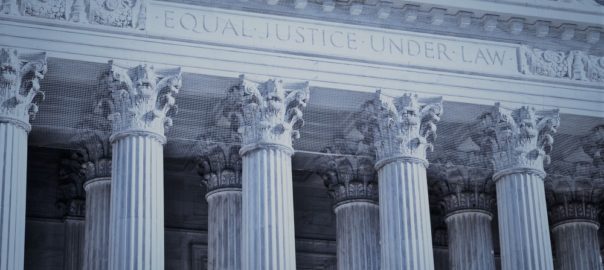Plea agreements, Breach of Plea Agreement, Waiver of Right to Appeal
U.S. v. Gonzalez
309 F.3d 882
Fifth Circuit Court of Appeals
Decided on October 14, 2002
Issue:
Plea agreements and sentence enhancements
Whether a defendant’s appeal waiver is enforceable when the Government violated the terms of the plea agreement by using information provided by the defendant in a debriefing to obtain sentence enhancement, where the cooperation agreement pursuant to U.S.S.G. § 1B1.8(a) stated that “any statements made by the defendant in the course of his promised cooperation would not be used against him when determining the applicable guidelines range except as provided by U.S.S.G. § 1B1.8(b).”
Holding:
Appeal waiver not valid after breach of plea agreement
The Fifth Circuit held that the Government breached the plea agreement by using information provided by the defendant against him at sentencing absent any exceptions, therefore voiding the appeal waiver provision of his agreement. The Court vacated the conviction and remanded to district court before another judge.
Facts:
Francisco Gonzalez pled guilty to conspiracy to distribute more than 100 kilograms of marijuana acquired from Mexico and transported for sale in Texas.
Pursuant to his plea agreement, which contained a standard waiver of appeal provision, Gonzalez agreed to cooperate with the Government. In turn, the Government agreed that “pursuant to U.S.S.G. § 1B1.8(a), any statements made by Gonzalez would not be used against him when determining the applicable guidelines range, except as provided in U.S.S.G. § 1B1.8(b).”
A probation officer filed a pre-sentencing report (PSR) indicating that Gonzalez’s sentence should be enhanced by two levels under U.S.S.G. § 3B1.1(c) because he had a leadership role in the offense. If the role enhancement were not applied he would be eligible for a safety valve. Gonzalez filed, under seal, objections to the PSR claiming that he was not the leader, that individuals following behind in a Suburban were the leaders.
Prior to a debriefing session, Gonzalez’s counsel received a proffer letter that stated, “No statements that either you or Mr. Gonzalez make during these discussions can be used as evidence against him in any civil or criminal proceedings except the Government may use such statements for the purpose of cross-examination, impeachment and rebuttal should your client testify at any proceeding contrary to this proffer.”
At the sentencing hearing, prosecution disclosed the information Gonzalez had provided in the debriefing and the lower court determined that fact was “the ultimate admission against interest” because his exclusive knowledge of the Suburban showed “some type of planning or direction” and gave “credence to what everybody else was saying.”
The district court sentenced Gonzalez to 70 months’ imprisonment, assigning an enhancement for his leadership role. He filed a motion for reconsideration, which the district court denied.
Analysis:
Preponderance of Evidence Standard
In determining whether the Government violated the terms of the plea agreement, Gonzalez must prove that the underlying facts establish a breach by a preponderance of evidence. The Fifth Circuit Court of Appeals “must determine whether the government’s conduct is consistent with the parties’ reasonable understanding of the agreement” (US v Wilder, 15 F.3d 1292, 1301 (5th Cir.1994)). The Fifth Circuit held that, “a plain reading of the proffer letter indicates that the parties’ reasonable understanding” would prohibit the Government’s use of the information Gonzalez provided in his debriefing against him, absent any exceptions.
Breach of Plea Agreement Voids Appellate Waiver
Pursuant to U.S.S.G § 1B1.8(a), which states that, “Where a defendant agrees to cooperate with the government by providing information concerning unlawful activities of others, and as part of that cooperation agreement the government agrees that self-incriminating information provided pursuant to the agreement will not be used against the defendant, then such information shall not be used in determining the applicable guideline range, except to the extent provided in the agreement,” Gonzalez’s statements during the debriefing should only have been disclosed (1) if one of U.S.S.G. § 1B1.8(b) exceptions applied; or (2) for the purpose of cross-examination, impeachment, or rebuttal if Gonzalez testified contrary to the proffer at any proceeding.
U.S.S.G. § 1B1.8(b) reads:
(b) The provisions of subsection (a) shall not be applied to restrict the use of information:
- known to the government prior to entering into the cooperation agreement;
- concerning the existence of prior convictions and sentences in determining §4A1.1 (Criminal History Category) and § 4B1.1 (Career Offender);
- in a prosecution for perjury or giving a false statement
- in the even there is a breach of the cooperation agreement by the defendant; or
- in determining whether, to what extents downward departure from the guidelines is warranted pursuant to a government motion under § 5K1.1 (Substantial Assistance to Authorities)
The Government never argued that any exceptions listed in § 1B1.8(b) did apply, nor did it argue that it was using the information as allowed in the proffer letter. Rather, the Government asserted that the information concerning the Suburban had been disclosed earlier by Gonzalez in his objection to the PSR and was no longer privileged, and that according to U.S.S.G. 1B1.8, the information could be disclosed but not “used against” the defendant. According to case law, the Government was not allowed to use the information against Gonzalez unless it could prove that the information came from a wholly independent source (US v Taylor, 277 F.3d 726, 727 (5th Cir. 2001)). The Government’s disclosure that no one else but Gonzalez knew about the Suburban proves they did not obtain the information from an independent source and were therefore prohibited from using it against Gonzalez.
The Fifth Circuit holds that § 1B1.8 does not prohibit disclosure of information provided in a plea agreement at sentencing, but it does prohibit this information from being used to determine the applicable guideline range (US v Taylor, 277 F.3d at 724), as it was used in this case. The Fifth Circuit Court of Appeals held that the Government breached the plea agreement, and therefore vacated Gonzalez’s conviction and sentence and remanded the matter to the district court.
